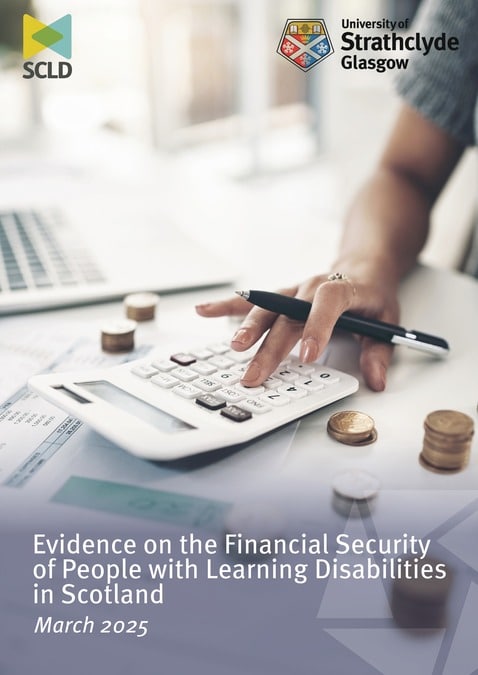This report investigated the financial situations of working-age people with learning disabilities in Scotland.
The research highlighted significant financial insecurity, with a large proportion of participants living below the Minimum Income Standard and experiencing material deprivation. Over half of participants were in relative poverty (below 60% of median income after housing costs) when additional cost benefits such as Personal Independence Payment (PIP) and Adult Disability Payment (ADP) were excluded from their incomes.
The research showed that both the social security system and the social care system can be confusing and difficult to navigate for people with learning disabilities. There were challenges with benefit and care adequacy, and participants did not tend to access independent advocacy. The report also found a correlation between the adequacy of social care and financial security.
The following options for improvement were identified:
- Better promotion and implementation of independent advocacy.
- More accessible information on Universal Credit rollout and upcoming health-related benefit changes.
- Exploration of ways to provide clarity on Universal Credit and employment with a disability.
- Support for existing recommendations for Self-Directed Support implementation.
- Wider, joined-up consideration given to improving financial security for people with learning disabilities and their families.
A technical report has been provided for those interested in detailed information on our methodology.
An easy read version of this report will be available soon.
Authors
Chirsty is a Knowledge Exchange Associate at the Fraser of Allander Institute where she primarily works on projects related to employment and inequality.

Matthew Muirhead
Matthew is SCLD's Development Worker, supporting various projects and creating accessible information. Matthew worked as a Co-researcher on the financial security project.

Ruth Callander
Ruth is SCLD's Evidence Lead, ensuring SCLD’s work is underpinned by the best available evidence. This includes utilising existing data, designing in-house research and collaborating with external partners.
Emma Congreve is Principal Knowledge Exchange Fellow and Deputy Director at the Fraser of Allander Institute. Emma's work at the Institute is focussed on policy analysis, covering a wide range of areas of social and economic policy. Emma is an experienced economist and has previously held roles as a senior economist at the Joseph Rowntree Foundation and as an economic adviser within the Scottish Government.


